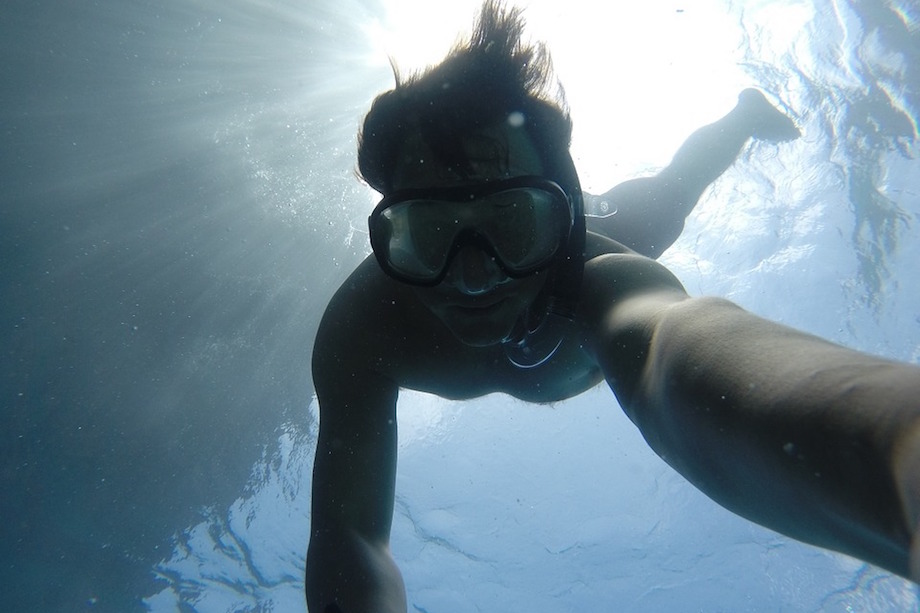Whether for the first time, or time and again, scuba diving can be the highlight of the holidays. But what happens when things turn south underwater? Here’s where your travel insurance comes into the picture.
Whether you’re a pro diver or a first timer, there’s nothing quite like strapping on a tank and sinking into the deep blue. Be it a cruisy coral reef crawl, or an open water escapade, Australian’s love to scuba dive the world with more of us getting into the sport each year.
But what if a once-in-a-lifetime dive sets your heart racing for all the wrong reasons? Or your strike it unlucky and become ill or injured while diving and need emergency medical treatment? Like with anything holiday-related, you’d hope your travel insurance will come to your rescue. But will it?
Travel insurance cover is all about risk. We think about how risky an activity is, how likely someone is to run into trouble doing said activity, and what the likely costs would be if things went awry. Fortunately, when we look at scuba diving, the risks are pretty serious, but unlikely when you know what you’re doing, or being looked after by someone else who does. So the short answer is YES, dive to your heart’s content, just as long as you follow a few key rules:
DO YOU HAVE YOUR PADI, AUSSIE STYLE?
For travel insurers, it really is about safety. So, to be able to offer you cover, it all comes down to whether you hold a valid open water diving licence issued in Australia, and if not, whether you’re under the watchful eye of a licensed dive operator. ‘Licensed’ means any industry accreditation like Padi, Dan or equivalent, by the way.
If these condition are met, and you’re not engaging in illegal or dangerous activities like diving under the influence, then you’re pretty much a-ok should you run into bad luck underwater and need hospitalisation, or even medivac.
The trouble with most travel insurance claim comes in when you’re taking a risk by diving untrained, or unsupervised. To be fair, it’s not like travel insurers are looking for loopholes here. Once again it’s about minimising risk by doing things safely. As if mum were watching.
INTO THE DEEP
Most insurers place a cap on the depth you can scuba dive to, like say 10 meters, Travel with Kit however covers licensed divers to a depth of 30 meters. Ditto if you’re unlicensed but diving under licensed instruction. Licensed divers are also cool to dive solo, under our cover.
IF ELIGIBLE, HERE’S WHAT’S COVERED
Travel insurers vary in how they cover scuba diving, but Travel with Kit will gladly cover overseas medical expenses for sudden illness or serious injury while scuba diving, medical evacuation to the nearest hospital or medical facility for treatment, and treatment in a decompression chamber if needed. We will need to rule out pre-existing medical conditions though, so just check that before you strap your flippers on. It all kicks in under our Water Sports Pack – additional cover designed for diving, surfing and the like.
YOU’RE ELIGIBLE TO BE COVERED IF…
- You hold a valid open water diving licence issued in Australia.
- If you don’t hold a license, you must be diving under licensed instruction.
YOU’RE NOT COVERED WHEN
- Scuba diving without a valid, Australian issued open water diving license, and without licensed instruction.
- Competing or taking part in a professional diving contest or activity that includes scuba diving.
- Intentionally exposing yourself to a needless risk or not taking reasonable care except in an attempt to save a human life.
- Search and rescue costs are not covered.
- Drinking alcohol before a dive can lead to dehydration, impaired decision making and a host of other risks. Travel insurance will also not cover any claims related to alcohol consumption, both in and out of the water.
ABOUT YOUR SCUBA GEAR
As long as your diving gear, like fins and snorkels, was lost or stolen while not in use, as in, not while you were scuba diving, then your gear is covered under Travel with Kit’s optional Water Sport Pack.
Most travel insurers don’t provide cover for any hired equipment, so if you’re hiring gear ask about taking out insurance from the scuba diving operator or rental company.
We don’t cover lost or stolen gear if it was left unsupervised or in a place that was unsecured – like an unlocked locker, for example.
The devil is in the detail, so if you’re getting set to scuba dive on holiday take note of some important rules and exceptions by having a read of your policy PDS. Happy travels!





